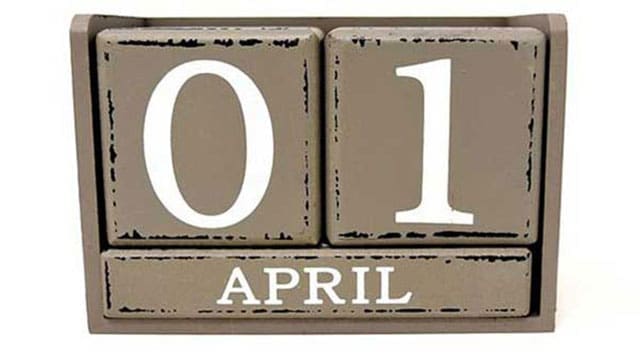Court jesters played a pivotal role in shaping our beloved April Fools’ Day tradition

We’re all on red alert for pranks, hoaxes, and fake news on April Fools’ Day. But that’s been going on for centuries, from the time when court jesters were common.
Long before the era of television, movies, and the Internet, jesters, jokers, and fools entertained people with their sharp wit and comedic skills. Emerging during the Medieval and Renaissance periods, these performers, often starting as nomads, would travel from place to place, accompanied by minstrels, delighting audiences at fairs and markets with their amusing stories.
Yet, it was the jesters who earned favour in the courts of monarchs and nobles who truly rose to prominence. These quick-witted individuals became valued members of the household staff, providing a welcome reprieve from the rigours of royal life.
But competition was fierce, with the position of court jester representing the pinnacle for only a select few. Those who succeeded could rise above the hardships of a nomadic lifestyle, entertaining peasants enduring poverty, disease, and filth. Their new life involved entertaining a captive audience while enjoying stability, shelter, and more to eat in one meal than what others might have in a week.
Everyone wanted the top job, but the supply of fools always exceeded the demand. There were no employment agencies back then, and Monster.com was still almost five centuries away.
| Click to listen to this podcast |
To get the attention of potential employers, jesters would take any opportunity to perform in front of the wealthy – not unlike what the paparazzi do to celebrities today.
Except you can’t behead a paparazzo, as King Henry VIII did to one fool on New Year’s Eve 1544 outside the Palace of Whitehall in London. In fact, in that era, beheadings were as common as weddings and banquets. Despite being warned, this fool pushed the monarch too far.
On that fateful night, even Henry’s personal jester, Will Sommers, failed to amuse the enraged monarch. Accounts from Sommers’ diary and tales passed down through generations depict a tumultuous scene, with Henry’s drunken rants marring the evening. The King’s threats to banish the jesters and behead them all added to the tension of the evening.
Sommers had been serving the King for years and had become his friend and confidante, earning his trust.
At the risk of his job and perhaps his life, he tried to convince the King that the serial execution of fools wasn’t in his majesty’s best interest. Sommers may have made the appeal for selfish reasons, coming from a family of fools. He attempted to convince the King that he needed to laugh, that all people need to laugh in tough times. Henry had just buried yet another wife, Catherine of Aragon, so his temperament was certainly suspect.
That argument failing to make an impression, Sommers proposed a novel solution – a grand audition, if the King so wished, which could uncover fresh talent for the court, sparing his fellow jesters from further retribution, i.e., the ultimate job dismissal.
Intrigued by the idea, Henry granted Sommers full authority to organize the auditions, scheduling them promptly upon returning from Versailles on April 1.
The auditions proved a resounding success, with laughter echoing through the halls of the palace like never before.
Henry was so delighted by the spectacle and thrilled by the outcome of finding a suitable successor for Sommers that he declared April 1 as the “annual Night of Fools” as a testament to the enduring legacy of jesters in his court.
The King would only enjoy a few of these events since he died in 1547, just three years later.
Sommers outlived his master, carrying on Henry’s tradition, honouring his legacy and entertaining Queen Elizabeth I until his passing in 1560 – of natural causes.
Over the following years, the tradition evolved, taking on new significance and acquiring yet a new name. In 1582, the Day of Fools was officially christened April Fools’ Day, aligning with the introduction of the Gregorian calendar by Pope Gregory XIII. This change, while seemingly minor, served to solidify the holiday’s place in the calendar and cement its enduring legacy.
April Fools’ Day continues to evolve, adapting to the changing times and embracing new forms of humor and mischief. Today, people across the globe eagerly anticipate the arrival of April 1, eager to partake in the age-old tradition of pranks.
So, as we celebrate April Fools’ Day this year, let us pause to reflect on the origins of this beloved tradition and the jesters who helped shape it. And if you find yourself on the receiving end of a prank – like this one, remember to laugh along – it’s all part of the fun!
April Fool!
Greg Gazin, widely recognized as the Gadget Guy or Gadget Greg, is a seasoned columnist for Troy Media. He has distinguished himself in the field of technology, contributing regularly as a syndicated tech columnist. Moreover, Gazin is an eloquent speaker on communication, leadership, and technology topics. He is also a proficient facilitator, blogger, podcaster, and author.
For interview requests, click here.
The opinions expressed by our columnists and contributors are theirs alone and do not inherently or expressly reflect the views of our publication.
© Troy Media
Troy Media is an editorial content provider to media outlets and its own hosted community news outlets across Canada.


